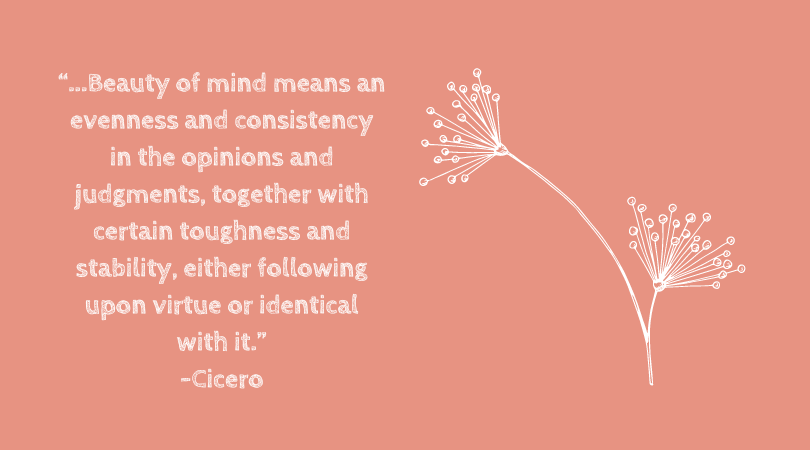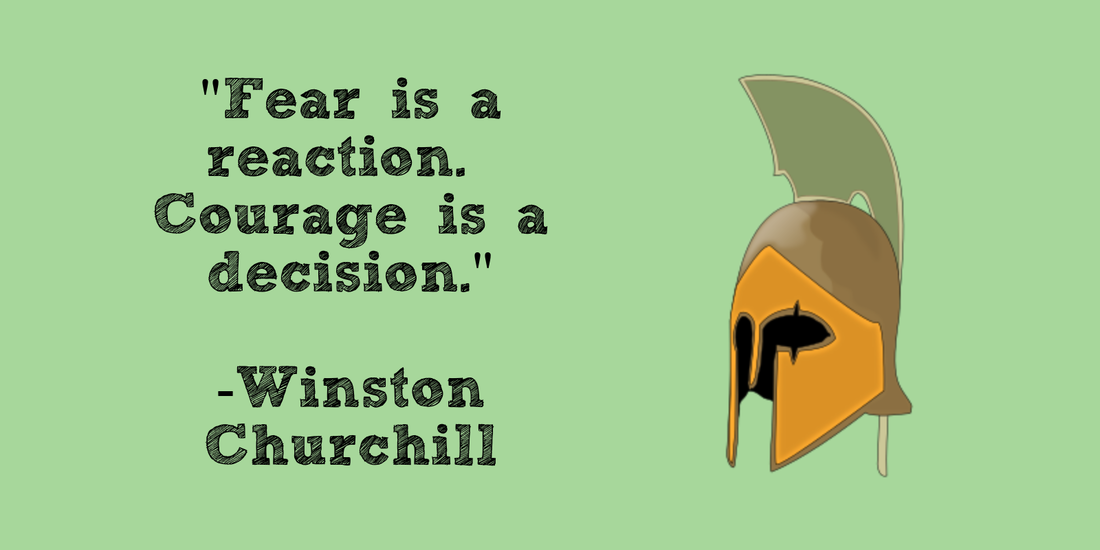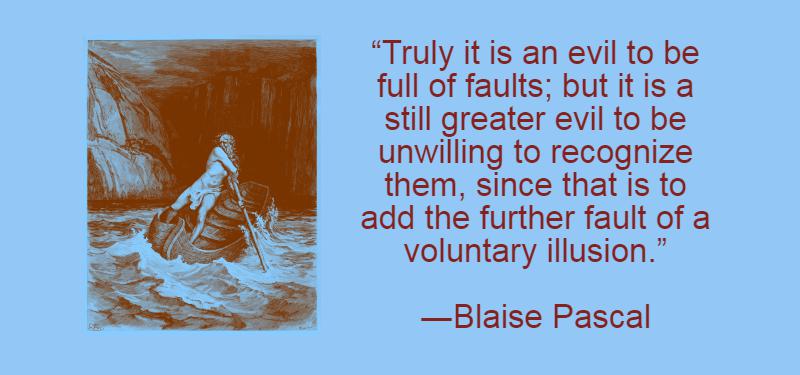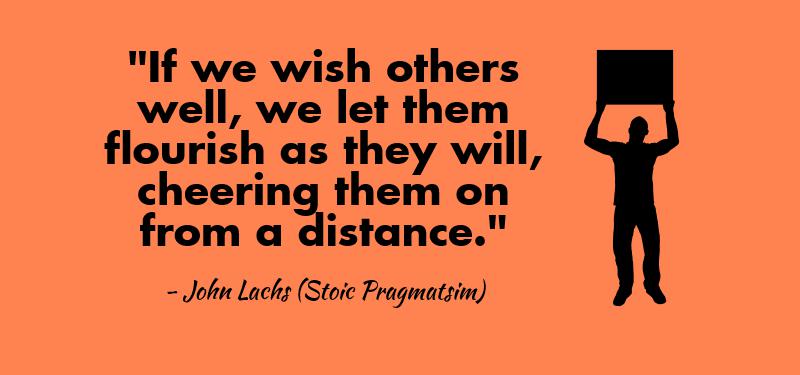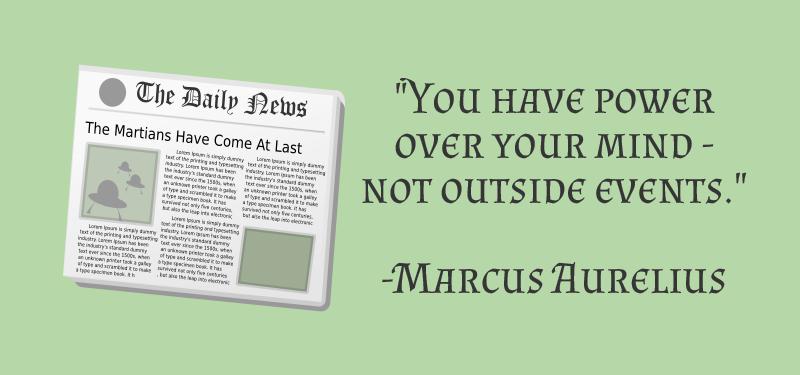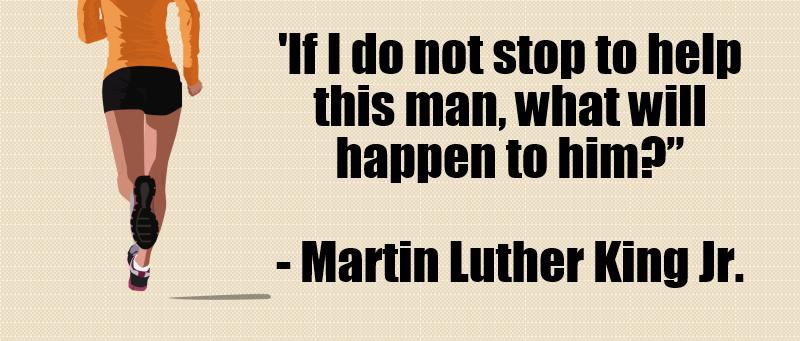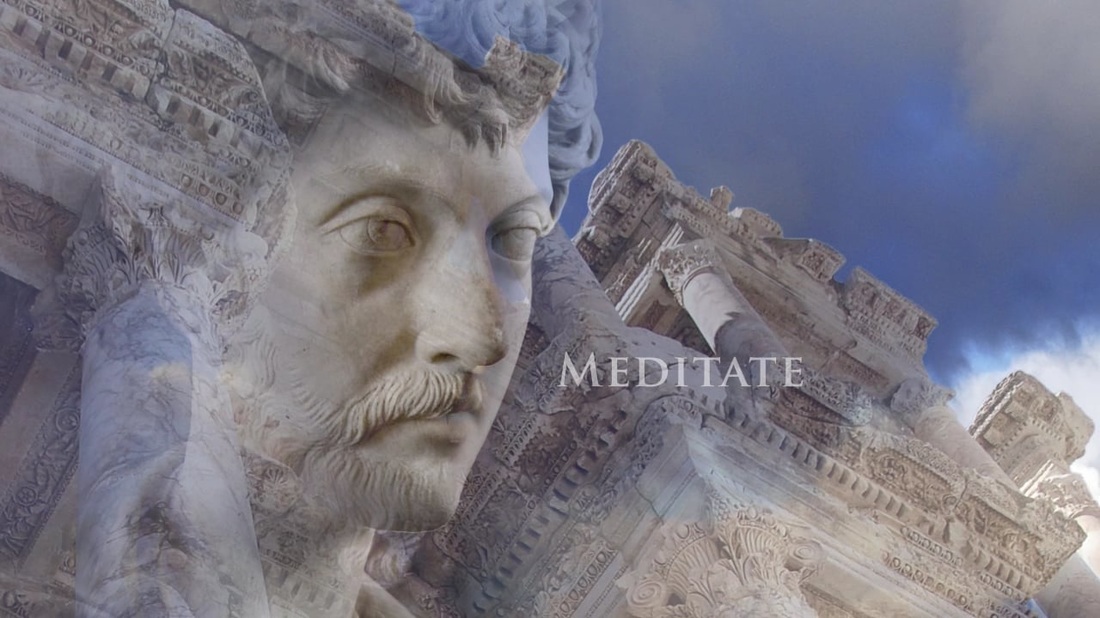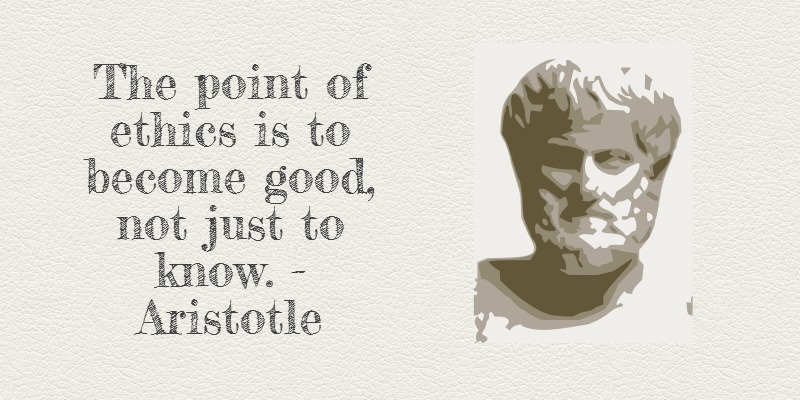The first part of the talk will be looking at what is moral beauty. We'll start with the ancient Stoics and we will fast forward about 1600 years to the Earl of Shaftesbury in England. Then we'll come up to contemporary times. How can we approach moral beauty? What does it mean for us today? And then the second segment of the talk will be some suggestions for how we can cultivate moral beauty today and make our lives more beautiful.
|
This guest post is a transcription of my friend Brittany Polat's talk at Stoicon 2023. It was previously published on Brittany's Substack, Stoicism for Humans, and includes the themes of virtue, moral progress, and Shaftesbury’s views on beauty and nature. I hope you find this very inspirational topic useful in your own life.
The first part of the talk will be looking at what is moral beauty. We'll start with the ancient Stoics and we will fast forward about 1600 years to the Earl of Shaftesbury in England. Then we'll come up to contemporary times. How can we approach moral beauty? What does it mean for us today? And then the second segment of the talk will be some suggestions for how we can cultivate moral beauty today and make our lives more beautiful.
2 Comments
I welcome Jonas Salzgeber, author of The Little Book of Stoicism, back to the channel for a Stoic dialog on matters of ultimate importance: injury, illness, coming to terms with mortality, fear, and irrational beliefs that result when fear overcomes reason.
We discuss the shortness of life, memento mori, facing fear, and the proper psychological perspective necessary to flourish and be more courageous during uncertain times. We also discuss a Stoic response to the covid-19 pandemic, reasonable caution, and not doing irrational or discriminatory things because of fear of death. Jonas' website: www.njlifehacks.com/blog/ The Little Book of Stoicism: https://amzn.to/3INdnOk* Support Common Sense Ethics to see more videos like this: https://www.patreon.com/commonsenseet... https://ko-fi.com/commonsenseethics *Affiliate link, I may earn a small commission from any Amazon purchases. In an interview with the World Ethical Data Forum, Julian Assange warned that the generation being born now is the last to be free. The message is quite disturbing. After all, it does seem as though we are headed that way, that long shadows are falling. "Look back over the past with its changing empires that rose and fell, and you can forsee the future too," Marcus Aureluis declares. Is this period of time similar to the fall of Rome? Maybe just the end of the Republic?
Anxiety seems to be at the root of the modern condition. Besides the stress that we deal with in our private lives, there are always political and geopolitical concerns (like the above) that stress us as well. Given all of this, I actually don't think that anxiety is by any means an irrational response. It's only when our response is disproportionate to the threat or when anxiety starts to take over our lives that it really becomes a problem. I can honestly say that with each new child that we have added to our family, my own anxiety has increased. After all, I have my family's wellbeing to look after, not just my own. Courage however, is a decision. It's how we respond to anxiety provoking thoughts that we have control over, not the external situation. Let me share with you the 2 best techniques that I use to overcome anxiety. Wondering how to be less stressed as a parent? Stoicism is an ancient Greek philosophy that teaches us how to focus on what we can control in life. Brittany Polat of Apparent Stoic and I discuss how to apply Stoic philosophy to parenting, and how it can make both parents and kids happier.
We discuss:
Since I write about ethics, virtue, and character there has always been a possibility that someone will ask what exactly makes me so great. The answer is nothing. I have faults like everyone else. I am however, continuously working to discover and overcome my faults. It's important to do this type of ongoing self assessment if you have any real interest in improving your character.
In ancient philosophy, arete, translated as excellence or virtue, was often held as the goal of a lifetime. Excellence can be developed through insight and habit. It's important to have insight about your negative personality traits if you want to change them. Usually just a small part of your total personality is actively holding you back and keeping you from flourishing in life as you might if your faults were corrected. Examining your own character flaws is actually not the easiest thing to do. We innately resist looking at our truly negative qualities as a matter of psychological self-preservation. So how can we identify and work with our own shortcomings? Uncovering your faults takes some maturity and courage. These 5 techniques inspired by the ancient philosophical tradition and Jungian psychology have helped me to gain more insight into my personal failings, and I hope they will be helpful to you as well. Do we have an obligation to be good, community minded citizens and to act accordingly? The simple answer is yes, but the full answer is more complicated, so please bear with me for a second.
I received some mildly critical feedback on my most recent post: 4 Pieces of Stoic Wisdom For Dealing With Negative News Media. (Nothing too harsh of course - this blog has polite readers!) The objections are with my suggestion that we should tune out news media entirely or almost entirely if we want equanimity. Those who commented, argued that Stoics (and presumably non-Stoics) have a duty to act socially and politically, and that ignoring the news smacks of self-interested isolation in the Epicurean Garden. So, what is the problem with staying informed via news media, you ask? Isn't that what we are supposed to do in a democracy? There are two parts to this question which warrant a response. First, there is the problem of social and political action, ostensibly based on the information we get via media. In other words, what should we "do about," current issues? Second, there is the problem of the information itself - with the quality and manipulation of news and mass media - which I will go on to address in part 3 of this series. Do social and political actions really have any effect? Can taking such actions be harmful? Do we have a duty to stay informed? Well yes...and no. It all boils down to the question of what do you plan on doing with the information you get from the news. There are certainly more and less ethical and effective ways to create a better community and a better world, so I have also included some helpful suggestions at the end of the post: News headlines, predominantly negative and sensational, dominate our lives. We are barraged with news information 24/7 through our smart phones, social media, TV, websites, papers, and magazines. What is the consumption of news media doing to our brain and our outlook on life? Should we choose to avoid the news altogether?
It’s is not a new question to be asking. 2000 years ago, the Roman Stoic philosopher Musonius Rufus questioned the effects that negative forms of socialization have in our lives. We, as philosophers, should not worry about the things that most people do as a result of their constant consumption of news media. “How could we acquire courage if we had merely learned that the things which seem dreadful to the average person are not to be feared, but had no experience in showing courage in the face of such things?” he asks. You too can exercise the Stoics' ancient brand of philosophical wisdom and not get upset about events in the news. Terrorism? A shooting? Crisis? Corrupt Politicians? Freedom from these concerns can be yours via these 4 important realizations: One really daunting aspect of modern life is that we are often busy, harried, and trying to multitask. A distracted state of mind can actually be an impediment to empathy, which forms the basis of our moral convictions.
Psychological studies have shown that people's ethical behavior is often out of sync with their sincerely held moral beliefs. Disturbing examples of this phenomena include the Standford Prison Experiments, where subjects tasked with being prison "guards," became increasingly more brutal towards "inmates." A less well know study conducted by Darley and Batson among seminarians, found that students who said they wanted to enter the ministry in order to help people where likely to ignore a person in distress depending on the circumstances. Does the Darley and Batson study indicate that people actually aren't as moral as they think they are? Maybe. Or is it that people are just so mindlessly busy and self absorbed that they don't stop to focus on what is happening around them? Does distraction act as an impediment to helping others? Epictetus argued that mindfullness, also known as prosoche, (which can be translated as ‘attention’) is essential for living an ethical life. Mindfullness is the antidote to the distracted, self-absorbed state that many people walk around in. What Can A 2300 Year Old Philosophy Teach Us? Top 5 Lessons Learned From Stoic Week 201512/10/2015 Every November, a group of psychologists and philosophers based at the university of Exeter in England run an experiment and online study course called Stoic Week. These same folks maintain the fabulous Blog, Stoicism Today. The 2015 Stoic Week theme focused on one of my favorite philosophers, Marcus Aurelius.
For those of you who aren't familiar with Stoic Philosophy, The Stoic School began with Zeno of Citicum in Greece and moved West to Rome where it was popular in the first few centuries A. D. The Stoics, including Zeno, Cicero, Seneca, Epictetus, Marcus Aurelius, and others developed a practical philosophy for increasing happiness and virtue, which they called The Art of Living. Stoic thought is currently enjoying a modern revival as some of the core practices align with those of cognitive behavioral psychology, as well as various elements of Eastern thought which resonate with modern readers. Stoic Week is an experiment of sorts where this pragmatic philosophy is applied through daily practice to see if it makes the participants happier and more content with their lives. I participated in Stoic week last month, and it was a great experience. Here are the top five lessons that I have learned from this 2300 year old philosophy: While it is probably impossible to prevent all interpersonal conflict, many problems can generally be prevented by being “nice,” which is a simplified term for ethical conduct, kindness, and good character. You will have fewer interpersonal problems in your life if you are as mindful as possible of your own behavior, meaning that you don’t thoughtlessly say and do things that harm others.
I’m actually not the most tactful person by nature. But I have learned from direct experience that improving my tact and self control largely leads to freedom from self inflicted interpersonal problems. What does that mean? Well, the more that you consciously govern your behavior, the less you will say and do things that you regret or that ultimately sabotage your relationships and your happiness. There are steps that you can take to increase your tact in conversations, and control your own behavior. If these steps do not prevent most conflicts, you still have a right to point out the mistakes and limitations of others if their behavior is hurting you. The downside to free will is that people can misuse it to harm others. People have a right to be wrong, just not to do wrong. Which is why it is essential to have strong personal boundaries when dealing with difficult or unethical people in your life. Here’s How: |
Don't Miss A Post!Sign up to receive updates and special announcements! Thank You For Subscribing to Common Sense Ethics!You have successfully joined my email list. About Me:Thank you for your interest in Common Sense Ethics! I'm Leah, a librarian and freelance editor with a background in history and philosophy.
Most Popular Blog Posts:3 Unpopular (But Likely Correct) Opinions According to Cicero Download My Stoic Printables For Tough Days:
Watch Common Sense Ethics On YouTube:
|

